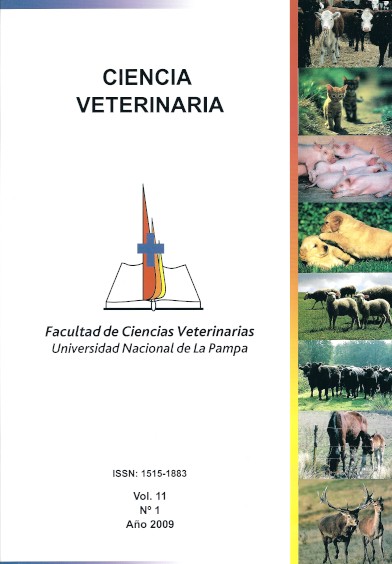Evaluación de los principales parámetros de calidad en carne equina
Palabras clave:
texture, microbiology quality, surface colourResumen
The objective of this work was to study themain quality parameters of horse meat.We
determined surface color, texture, moisture
content, water activity, pH, drainage, losses
during cooking and microbiological quality of
samples of horsemeat for the Longissimus
dorsi muscle, 48 hours postmortem.The surface
colour was quantified based on the coordinates
L*, a*, b* of CIE scale, using a Minolta
colorimeter CR300 Series.The texture was
measured with aTA-XT2 texturemeter Stable
Micro Systems Ltd, using Warner-Bratzler
probe.The surface colour values were L *=
34.05, a *= 18.85 and b = 9.25, only the lightness
(L *) was slightly lower than beef, thus indicating
darker meat.As for texture, equine
muscle showed 15% greater shear strength.
The values of moisture content (%), aw, pH
and cooking losses were 74.3%, 0.982, 5.37
and 28% respectively, and none of the cases
showed significant differences with the control.
The exudate (drip) in 24 hours when
stored at 4 º C was 2.37%.This value is within
the range of those reported by authors for
beef. In relation to microbiological quality, initial
counts were made total mesophilic microorganisms
and Enterobacteriaceae from
equine meat surfaces, with values of 76.36
CFU/g and 74.6 CFU/g respectively.These results
are within the range allowed by the CAA,
this food can be considered as optimal for
consumption.According to the results we can
conclude that horse meat would be a highly
viable for human consumption replaces beef.
Descargas
Descargas
Publicado
Número
Sección
Licencia
Al momento de enviar sus contribuciones, los colaboradores deberán declarar , de manera fehaciente, que poseen el permiso del archivo o repositorio donde se obtuvieron los documentos que se anexan al trabajo, cualquiera sea su formato (manuscritos inéditos, imágenes, archivos audiovisuales, etc.), permiso que los autoriza a publicarlos y reproducirlos, liberando a la revista y sus editores de toda responsabilidad o reclamo de terceros , los autores deben adherir a la licencia Creative Commons denominada “Atribución - No Comercial CC BY-NC-SA”, mediante la cual el autor permite copiar, reproducir, distribuir, comunicar públicamente la obra y generar obras derivadas, siempre y cuando se cite y reconozca al autor original. No se permite, sin embargo, utilizar la obra con fines comerciales.




.jpg)

4.png)


7.png)






